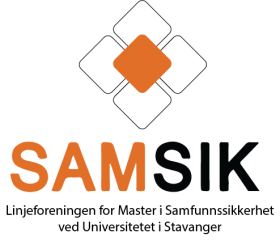https://www.jobbnorge.no/en/available-jobs/job/207875/phd-research-fellowship-in-security-and-risk-management-for-5g-networks
Denne stillingen passer for studenter med samfunnssikkerhetsbakgrunn. Merk at stillingen kan kreve sikkerhetsklarering.
«A position as PhD Research Fellow is available at the Department of Informatics, the University of Oslo, to work on Security and Risk Management for 5G Networks, as part of the Raksha research project funded by the Research Council of Norway.
The scholarship period is 3 years devoted to PhD coursework and research training. Candidates may be offered one additional year by the Department of Informatics; the 4-year position then entails a compulsory workload of 25% that may consist of teaching and supervision duties.
The starting date must be no later than 1 October 2021. Applicants who are currently working on their master’s degree have until 31 August 2021 to complete the final exam.
No one can be appointed for more than one PhD Research Fellowship period at the University of Oslo.
The PhD project will focus on technologies for Cyber Security in general, with specific focus on Security and Risk Management for 5G Networks. Research project tasks will typically involve some of the following activities: theoretical modelling, development of prototype software tools, analysis and experimentation, writing of scientific publications, as well as some project management.
The PhD position is located at the Department of Informatics and specifically in the Research Group for Digital Security.
The PhD student will work in the context of the Digital-Security Group, and in particular as part of the Raksha project which is funded by RCN (the Research Council of Norway). The PhD-student will collaborate with the other project partners SINTEF, SimulaMet and USN (University of South-East Norway).
The Faculty of Mathematics and Natural Sciences has a strategic ambition to be among Europe’s leading communities for research, education and innovation. Candidates for these fellowships will be selected in accordance with this, and expected to be in the upper segment of their class with respect to academic credentials.
Required qualifications
- Applicants must hold a master’s degree or equivalent in one or several of the following disciplines: Information/Cyber/Digital Security, Computer Science, Informatics, (Mobile) Communication Technology, Societal Security, Resilience and Risk Management.
- Foreign completed degree (M.Sc.-level) corresponding to a minimum of four years in the Norwegian educational system.
Candidates without a Master’s degree have until 31 August, 2021 to complete the final exam.
Only candidates with citizenship from European, NATO and “Five Eyes” countries may apply for this position. The reason for this is that cyber security research may involve collaboration with defense and national security organizations where a security clearance may be needed.
Grade requirements:
The norm is as follows:
- the average grade point for courses included in the Bachelor’s degree must be C or better in the Norwegian educational system
- the average grade point for courses included in the Master’s degree must be B or better in the Norwegian educational system
- the Master’s thesis must have the grade B or better in the Norwegian educational system
- Fluent oral and written communication skills in English
- English requirements for applicants from outside of EU/ EEA countries
The purpose of the fellowship is research training leading to the successful completion of a PhD degree.
The fellowship requires admission to the PhD programme at the Faculty of Mathematics and Natural Sciences. The application to the PhD programme must be submitted to the department no later than two months after taking up the position. For more information see:
http://www.uio.no/english/research/phd/
http://www.mn.uio.no/english/research/phd/
The candidate must have excellent abilities to express herself/himself in English, both in writing and orally. It is expected that the candidate will be able to work independently, and within a relatively short time be able to take initiatives to make contacts and to collaborate with the national and international research community.»


